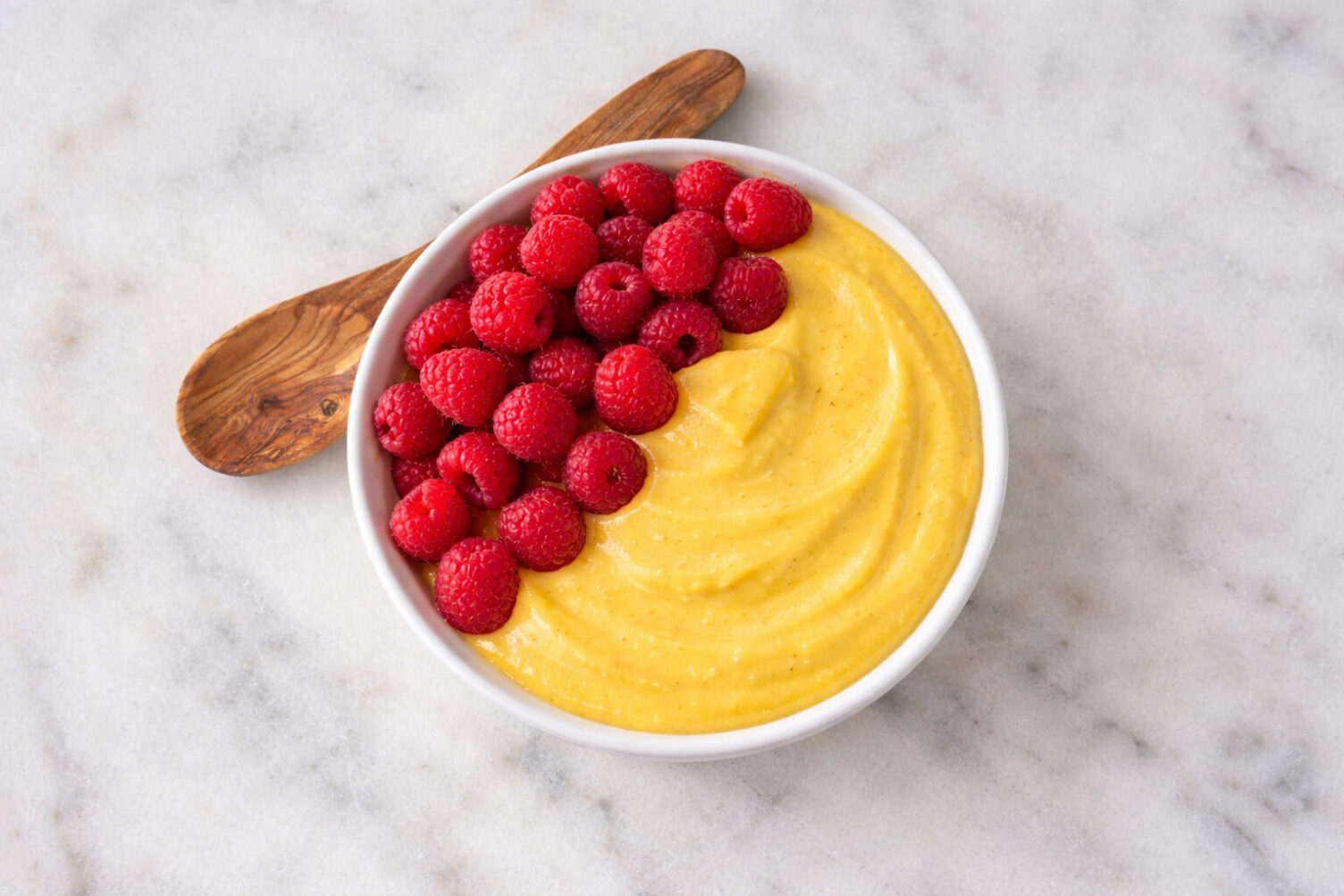August is National Breastfeeding Month—an ideal time to highlight the role nutrition plays in supporting both you and your baby during this special phase of life.
Picture this: you’re holding your little one in one arm while rummaging through the pantry with the other, wondering if grabbing a second granola bar will suffice as “lunch.” If this sounds familiar, you’re not alone.
Navigating the early days of parenthood can be overwhelming, with sleep schedules, diaper changes, and countless other priorities taking over.
Nutrition might seem low on the to-do list, but it’s key to feeling your best and passing essential nutrients to your baby (1). And, with a little guidance, it can be more manageable than you think!
Small, intentional changes to your diet can provide the nourishment that supports your energy, confidence, and your baby’s healthy growth. Let’s explore how.
Why Nutrition Matters During Breastfeeding
Did you know the nutritional makeup of breast milk changes based on your baby’s age, time of day, and other factors (1)?
Human milk is often described as “liquid gold,” offering tailored nutrition that evolves daily to meet your baby’s needs (1).
The nutrients needed to produce milk come from your diet and your body’s own reserves (1). This means your diet affects both the quality and amount of milk you produce.
Your nutrient needs increase to make milk, recover from pregnancy and childbirth, and replace lost nutrients (2).
That makes balanced nutrition essential not just for your baby’s health, but for your own energy, recovery, and mood.
A nutrient-rich diet over time may help support emotional well-being during and after pregnancy (3).
But remember, it’s not about perfection. Focus on variety, balance, and eating enough to nourish both you and your baby.
And as a bonus, think about this: varied flavors in breast milk may help your baby accept solid foods more easily later on (4)!
You might also like
Women’s Daily Vitamin Routine: A Dietitian’s Guide to Getting Your Nutrients
Key Nutrients to Focus On
Certain nutrients play outsized roles during breastfeeding. Here’s a breakdown of why they matter, how much you need, and some of the best food sources.
Protein
Getting enough protein is key for healing after labor, maintaining muscle mass during breastfeeding, and supporting milk production (5, 6, 7).
Eating high-protein foods may even boost prolactin, a hormone that helps with your milk supply (7).
Plus, the amount of protein you eat can directly influence your milk’s protein content for baby (7)!
It’s recommended that breastfeeding moms need at least 65-71 grams of protein daily, or around 1.05 grams of protein per kilogram of body weight per day (7, 8). But some research suggests they might need more (6).
If you’re interested in increasing your protein intake, check in with your dietitian to see if a high-protein diet is right for you while breastfeeding.
Good food sources of protein:
- Poultry and lean meats
- Low-mercury fish
- Beans, peas, and lentils
- Greek yogurt
- Tofu and soy products
- Eggs
Iron
Iron is essential for fighting postpartum fatigue and supporting your baby’s brain development while breastfeeding (9, 10).
The recommended intake for breastfeeding moms is just 9 milligrams per day since there’s often no menstrual blood loss in the first 6 months, and iron stores from pregnancy help cover your needs (11).
But, if you had low iron during pregnancy or significant blood loss during childbirth, check with your doctor to see if you need more iron while breastfeeding (11).
When your period returns your iron needs may increase to about 18 milligrams per day, which is the recommended amount for menstruating women (12).
Also, by 6 months, babies (including breastfed babies) need extra iron from foods (10). Chat with your pediatrician for guidance!
Good food sources of iron:
- Meat, poultry, and seafood
- Egg yolks
- Nuts and seeds
- Iron-fortified grains
- Beans, peas, and lentils
- Spinach
Calcium
Breastfeeding moms need calcium to support their baby’s bone growth and overall development (13).
Calcium supports mom’s bones, too, but breastfeeding still tends to temporarily lower bone density (14).
Don’t worry, this is considered normal and usually restores after weaning (14). Getting more than the recommended amount of calcium has not been shown to prevent this temporary bone loss (14).
Women who are breastfeeding need the same amount of calcium as non-lactating women, which is about 1,000 milligrams per day (13).
So, rather than aiming for extra calcium, focus on getting the recommended amount for you and your baby’s overall health!
Good food sources of calcium:
- Cow’s milk, hard cheeses, and yogurt
- Calcium-fortified soy milk, tofu, and soy yogurt
- Leafy greens like kale and broccoli
- Some seafood like shrimp
Vitamin D
Vitamin D is key for absorbing calcium, aiding bone health, and supporting the immune system—for both moms and babies (15, 16).
Breastfeeding moms need the same amount of vitamin D as non-lactating women, which is about 600 IU per day (15).
But breast milk alone often doesn’t provide enough vitamin D for babies, so most breastfed babies are recommended to receive a 400 IU supplement starting in the first few days of life (16).
As an alternative, some research suggests that moms can increase vitamin D in their breastmilk by taking a high-dose vitamin D supplement, which may meet their baby’s needs (17, 18). But, this should only be done with guidance from a doctor or dietitian to avoid the risks of too much vitamin D (17, 18).
Good sources of vitamin D:
- Sunlight exposure
- Fortified milk
- Fatty fish like salmon and trout
- Vitamin-D supplements
Iodine
Iodine is essential for producing thyroid hormones, which play a big role in your baby’s growth and brain development (19).
Since breastfed babies get their iodine from breast milk, it’s important for breastfeeding moms to have enough iodine in their diet (19).
It is recommended that breastfeeding moms need 290 micrograms of iodine daily throughout the first year after baby’s birth (19).
Many breastfeeding moms don’t meet these recommendations through diet alone (19).
So, current guidelines recommend that breastfeeding women take a supplement containing 150 micrograms of iodine every day as well as eating iodine-containing foods (19).
Talk to your doctor or dietitian to determine the right amount of iodine supplementation for you.
Good food sources of iodine:
- Dairy products
- Eggs
- Seafood
- Iodized table salt
Choline
Choline is another key nutrient that breastfeeding moms need to ensure their breast milk has enough for their baby (20).
It supports your little one’s growth, including their tissues, brain development, and memory (21, 22).
Getting enough choline while breastfeeding isn’t just good for your baby. It also may help moms by supporting your immune system and keeping your gut healthy (21).
The recommended intake for breastfeeding women is 550 milligrams of choline daily during the first year after giving birth (20).
If you’re not sure if you’re getting enough, talk to your doctor or dietitian to help you figure out if a choline supplement is a good idea for you.
Good food sources of choline:
- Dairy products
- Eggs
- Poultry and meats
- Some seafood
- Beans, peas, and lentils
Vitamin B12
Infants need vitamin B12 for brain development and healthy red blood cells (23). A prolonged deficiency, if left untreated, , may lead to serious and potentially permanent brain damage (23).
Breastfed babies rely on their mother’s milk for B12, especially in the first six months (23, 24).
Women who are breastfeeding need 2.8 micrograms of vitamin B12 per day, according to the Recommended Dietary Allowance (RDA) (25).
Since B12 is mostly found in animal products, breastfeeding moms who follow a vegetarian or vegan diet should consider a B12 supplement to ensure their baby gets what they need (23).
If you’re unsure if you’re getting enough, talk to your doctor or dietitian about whether a B12 supplement while breastfeeding is right for you.
Sources:
- Poultry and meat
- Fish
- Dairy products
- Eggs
- B12-fortified plant milks
- B12-fortified cereals
Omega-3 Fatty Acids
Like other key nutrients, breastfed babies get their omega-3s from breastmilk (26). So, as a breastfeeding mom, it’s important to make sure you’re getting enough every day (26).
Omega-3s, especially DHA, are essential for your baby’s brain and eye development, helping support healthy cognitive and visual development (26).
Breastfeeding moms should aim for at least 300 milligrams of omega-3 EPA and DHA per day, with at least 200 milligrams specifically coming from DHA for baby’s health and development (28).
But, it’s not just about the baby! For moms, omega-3s can support heart health and may help lower the risk of postpartum depression (27).
Good sources of omega-3:
- Low-mercury, fatty fish
- Fish oil or algae-based omega-3 supplements
Note: Plant foods like walnuts and chia seeds provide omega-3 ALA, but our bodies only convert small amounts of this to EPA and DHA (28). For breastfeeding nutrition, rely on direct sources of EPA and DHA.
Fluids
Breast milk is made up of over 80% water (29). So, staying hydrated while breastfeeding is essential to maintain your milk supply and avoid dehydration!
Breastfeeding often increases thirst, so listen to your body and drink whenever you feel thirsty.
As a breastfeeding mom, you’ll need about 16 cups (128 ounces) of water daily (30).
Yes, this sounds like a lot! But it includes fluids from foods, water, and other drinks to make up for the extra hydration your body uses to produce milk (30).
An easy way to stay on top of your hydration is to drink a large glass of water (or other sugar-free beverage) each time you nurse your baby.
Keep in mind that factors like exercise and hot weather can increase your fluid needs (31). And if your urine is dark yellow, it may be a sign that you’re not drinking enough fluids (4).
Good sources of hydration:
- Plain water
- Seltzer water
- Coconut water
- Black coffee and teas (be mindful of caffeine)
- Water with a splash of 100% juice
- Water-rich fruits and vegetables
- Broth-based soups
What to Be Mindful About
While you don’t need a “perfect” diet, there are things to limit or avoid:
- Caffeine: Keep your caffeine intake under 300 milligrams a day and watch your baby for signs like fussiness or trouble sleeping (9). Some babies can be extra sensitive to caffeine in breast milk (9)!
- Alcohol: Alcohol enters breast milk and clears at the same rate as your bloodstream (9). “Pumping and dumping” does not speed up the elimination of alcohol from breastmilk (9)! This means not drinking is the safest choice (32). If you drink, wait until the baby is at least 3 months old, and allow at least 2 hours to pass after a single drink before breastfeeding (30, 32).
- Mercury-rich Fish: It’s important to avoid high-mercury fish like king mackerel and swordfish, especially while breastfeeding (33). Stick to lower-mercury options, like salmon and cod, and limit these to just 1 to 3 servings per week (33).
- Extreme or Ultra-Low Calorie Diets: Steer clear of extreme or very calorie-restricted diets, as they can affect milk supply and fail to provide proper nutrition for your breastfed baby (34). These diets can also drain your body’s nutrient reserves, causing fatigue and potential health issues (35).
Other Considerations for Breastfeeding Nutrition
Some other things to keep in mind for breastfeeding nutrition include:
- Health Conditions: Some breastfeeding moms may struggle to absorb nutrients like vitamin B12, folic acid, iron, or calcium due to conditions like bariatric surgery or gastrointestinal disorders (23). If you have a health condition, talk to your doctor or dietitian about meeting your nutritional needs while breastfeeding.
- Feeding Fussiness: Foods like spicy dishes or gas-producing veggies can sometimes make breastfed babies fussy (30). If your baby seems uncomfortable after you eat certain foods, cut them out for a week to see if it helps (4, 30). If there’s no change or you’re unsure, consult your pediatrician.
- Food Allergies: Food allergies from breastfeeding are rare, but common allergens like dairy, nuts, or eggs may occasionally cause issues like rashes, digestive problems, or fussiness (4, 30, 36). Monitor your baby after feedings, and talk to your pediatrician about any concerns. If severe symptoms like wheezing or throat swelling occur, seek immediate medical help.
Frequently Asked Questions (FAQs)
How many extra calories do I need while breastfeeding?
Most breastfeeding moms need an extra 340 to 400 more calories daily than before pregnancy (20). But it depends on factors like their age, activity level, and whether they are exclusively breastfeeding (20). Listen to your hunger cues!
Can I lose weight while breastfeeding?
Yes, breastfeeding moms often lose 1 to 4 pounds per month naturally without cutting calories, but results can vary from person to person (31). Wait at least two months for your milk supply to establish before trying to lose weight (37). Then, aim to lose no more than about 1 to 2 pounds a week. Rapid weight loss or cutting calories too much can affect milk supply (34, 37).
What if my baby reacts to something I eat?
If your baby seems fussy or gassy after you eat certain foods, take note, and try avoiding that food for a week to see if it helps (4). When in doubt, consult your pediatrician.
Are supplements necessary while breastfeeding?
Supplements aren’t necessary if your diet meets your breastfeeding nutrition needs. But, if you’re missing some key nutrients (like most moms!), postnatal supplements or multivitamins are recommended (4, 20). Consult your doctor or dietitian to find what’s best for you.
The Bottom Line
Nourishing yourself while breastfeeding is essential, but it doesn’t have to be overwhelming. Focus on eating a variety of whole foods, staying hydrated, and finding balance.
Give yourself grace during this special time for you and your little one. Every meal doesn’t have to be perfect, and small changes make a big difference over time.
If you’re unsure about whether you need a supplement while breastfeeding, speak with your doctor or dietitian. They can give you personalized advice that’s right for you.
Need extra support on your postpartum health journey? Tools like MyFitnessPal can help you track your nutrition and simplify meal planning to help both you and your baby thrive.
The post Ultimate Guide to Breastfeeding Nutrition appeared first on MyFitnessPal Blog.
Publisher: Source link





